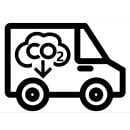In order to use this website you need to accept the use of Cookies , our Privacy Policy , and our Terms and Conditions.

What is coronavirus?
Coronavirus is a respiratory illness with varying symptoms. This Coronavirus is called 2019-nCoV. It is a new strain of coronavirus and scientists are still learning about the virus. The first case of 2019-nCov was reported in Wuhan, China in December 2019. According to CNN Health, the cause of 2019-nCoV most likely came from humans ingesting a certain type wild animal who carried the disease.
From the information scientists have learned about coronavirus so far, it can make some people feel a little bit sick with minor symptoms such as a runny nose and other people feel sicker with symptoms such as difficulty breathing. People having trouble breathing may develop viral pneumonia.
Unfortunately, some people may get very sick and need to be hospitalized. Among those very sick people some people have died. However, most of the people that died had other underlying health issues.
Currently there is no vaccine or cure for coronavirus. It is estimated that it may take up to 18 months for scientists to develop a vaccine. However, there are hopes that a vaccine may be developed sooner.
The difference between a cold/allergy and the flu/coronavirus:
Allergies and colds tend to affect a patient’s head and sinus (nose) areas. This results in symptoms of itchy eyes, a stuffy nose and sneezing. Allergies usually occur during the changing of seasons, and a patient will experience these symptoms annually.
However, the flu and coronavirus affect the lower respiratory tract, resulting in symptoms of a runny nose, sore throat, a cough, fever, joint ache, fatigue and shortness of breath. Some patients have developed viral pneumonia.
Why is the coronavirus so dangerous?
This coronavirus (2019-nCoV) is especially dangerous, compared to other viruses, 2019-nCoV has been more severe in its infection rate as well as its mortality rate. On average, for one person that is infected with the virus, he/she will infect two other people.
The coronavirus is dangerous because it is so easily spread. This is because the virus spreads through respiratory droplets. These small liquid droplets exit the body when a person coughs or sneezes.
One should avoid close physical contact, like shaking hands, hugging or kissing others. If in regular contact with a person who may have contracted coronavirus (e.g. a family member), it is of particular importance to wear a mask and ensure to wash your hands as often as possible.
If you experience any symptoms of the coronavirus it is important to seek medical attention early. It is advised to call your doctor or hospital ahead of time to give them an advanced warning that you may be infected with the coronavirus. The South Africa 2019-nCoV hotline number: 0800029999.
Questions Doctors may ask to determine if you have coronavirus:
- Do you live or work near an area where there is an outbreak?
- Have you travelled recently, if so, where?
- Have you been in contact with anyone who has travelled? If so, where did they travel to?
- Have you had anybody visit your home who may have come from any regions where coronavirus has spread?
Steps to protect yourself from exposure from the Coronavirus:
- Wash your hands with soap and water regularly for at least 20 seconds. (This kills the virus that may be on your hands).
- Clean your hands with hand sanitizer when soap is not available.
- Avoid touching your eyes, nose and mouth with unwashed hands.
- If you need to cough or sneeze, ensure you cover your nose and mouth with a flexed elbow or use a tissue. (If using a tissue, discard immediately in a closed bin).
- Avoid close contact with anyone who exhibits flu-like symptoms. (Maintain a minimum of 1 meter).
- Avoid traveling to areas of suspected and confirmed cases of coronavirus.
Facts About the Coronavirus:
- It can be transmitted in areas with hot and humid climates.
- Snow and cold weather conditions cannot kill the virus.
- Taking a hot bath will not prevent coronavirus.
- Coronavirus cannot be transmitted through mosquitoes.
- Hand dryers will not kill the virus.
- Thermal scanners can only detect people who have a fever; however, people could still carry the coronavirus and remain undetected by the thermal scanner.
- Spraying your body with alcohol or chlorine will not kill the virus if it has already entered your system. (Spraying one’s body with alcohol and chlorine can be dangerous).
- At this point in time, there is no evidence to suggest that pets (cats and dogs) can be infected with the new coronavirus.
- Vaccines against pneumonia cannot protect you against the coronavirus. (Pneumonia vaccines prevent bacterial pneumonia, not viral pneumonia [caused by coronavirus]).
- Eating garlic will not help to prevent coronavirus.
- Antibiotics are not effective in preventing or treating the coronavirus (antibiotics only help to cure bacteria, not viruses).
- Coronavirus can infect any person (young or old), however older people and people with pre-existing medical conditions appear to be more vulnerable to becoming seriously ill.
- There are no recommended medications to prevent or treat coronavirus.
References:
- The Guardian – https://www.theguardian.com/world/2020/mar/10/coronavirus-facts-mortality-rate-is-there-cure
- CNN Health – https://edition.cnn.com/2020/03/11/health/coronavirus-cold-allergies-flu-difference-symptoms-wellness-trnd/index.html
- World Health Organisation – https://www.who.int/emergencies/diseases/novel-coronavirus-2019/advice-for-public
Coronavirus Map Links

